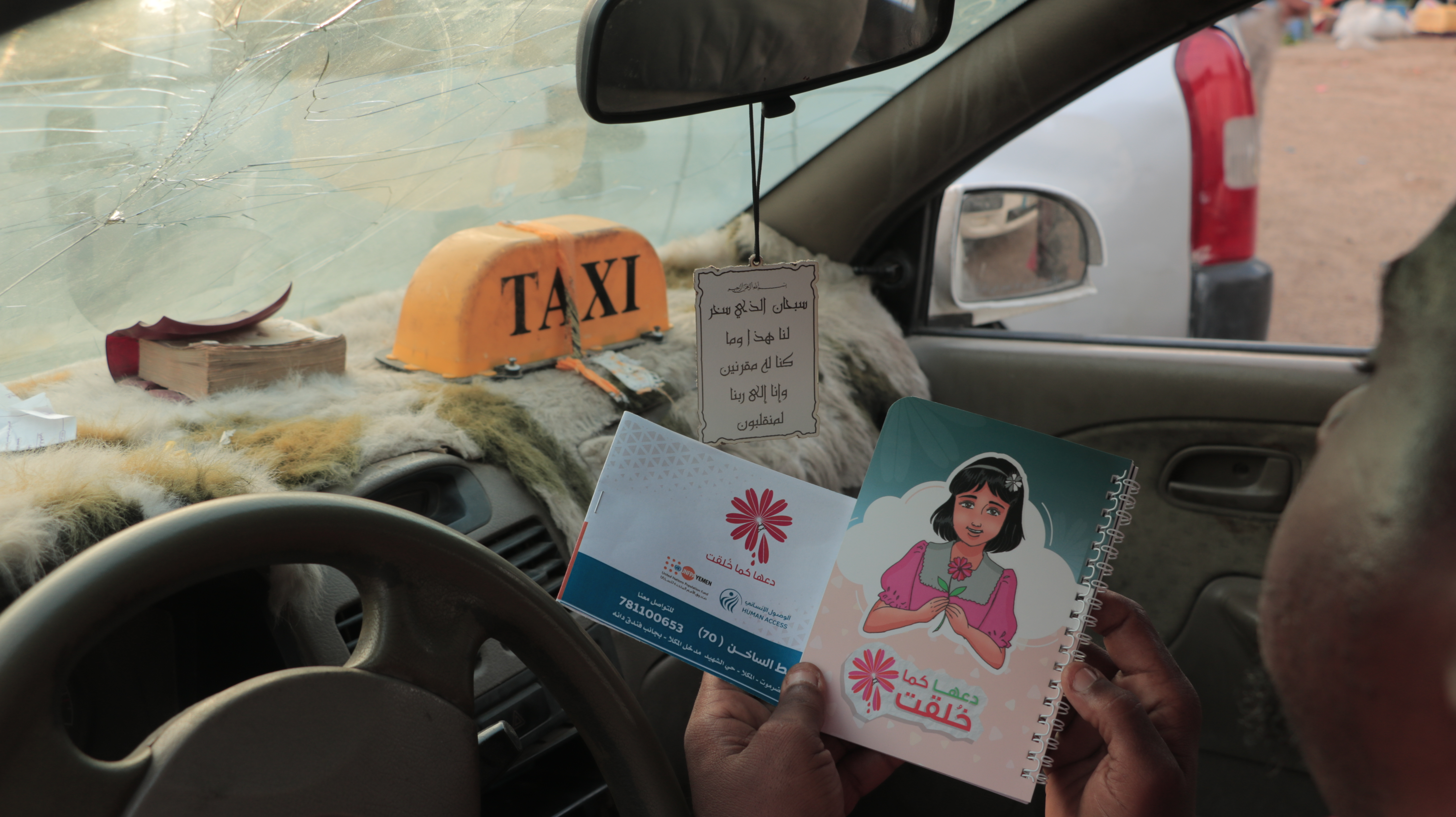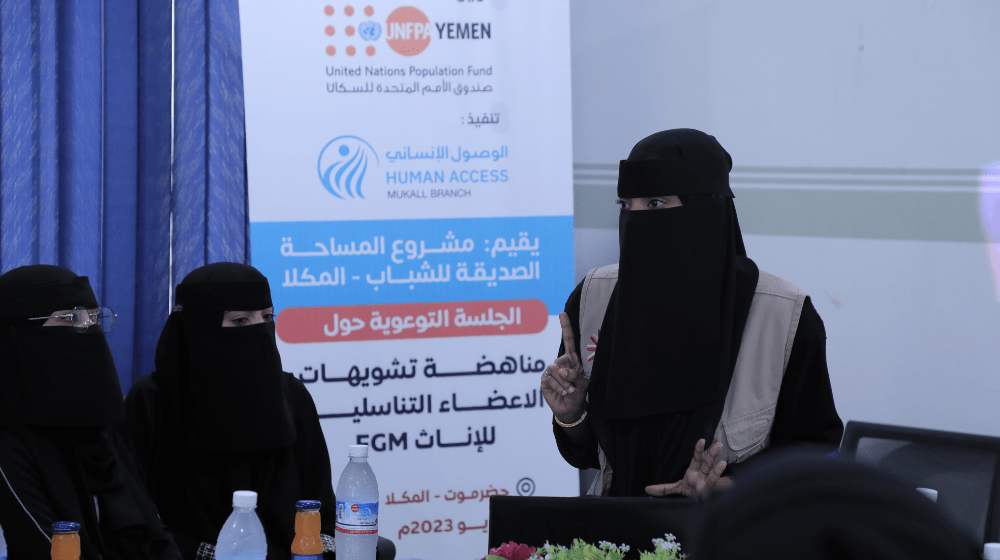Religious, community, academic leaders and young people are coming together across Yemen to combat the scourge of female genital mutilation (FGM) and the myths that underpin it.
Nearly one in five girls aged 15 to 49 have endured FGM in Yemen, with the harmful practice typically carried out by traditional practitioners. Years of conflict have decimated the country’s health services, pushing up the risk of serious complications from female genital cutting.
Yet through the ground-breaking ‘Shamekhat,’ or ‘Girls Stand Tall’ Network, influential religious leaders now use busy Friday sermons to bust the myth that FGM is condoned by religion, and are working with experts and partners to raise awareness of the risks in their communities.
Since the Shamekhat Network’s launch in Yemen in 2019, religious leaders have hosted four workshops with over 120 more religious authorities to share strategies and messages. In the governorate of Aden and Al Mukalla City, religious leaders have issued statements calling for the abandonment of FGM, with two communities declaring their rejection of the harmful practice.
The Shamekhat network ties faith-based, youth and community groups together, with staff and students at Hadramout University working to combat FGM among students and the community. Women conduct home visits to pregnant women to convince them not to cut their daughters.
FGM is prevelant in southern Yemen, and theatre, roleplay and social media are used to help young people break free from the harmful practice at UNFPA-supported youth and women and girls safe spaces. Radio, TV and posters are also used to spread the word.

“Being part of the Shamekhat Network means I can use my skills and knowledge to help educate people about the dangers of FGM, and help to promote positive change in my community,” says Dr Moataz Abdel Motamed, a faculty member at Hadramaut University.
According to Dr Abdel Motamed, campaigning through the Shamekhat Network has helped shift attitudes away from accepting the practice as normal, generated support from local authorities, led to more families choosing not to cut their daughters and improved support for survivors.
“FGM is a brutal practice. This makes working with religious leaders absolutely crucial. The creative and community-driven approach of the Shamekhat Network will build momentum across Yemen to end FGM,” says Enshrah Ahmed, UNFPA Representative in Yemen.
The Shamekhat Network is supported with funds from the UNFPA-UNICEF Joint Programme to Eradicate Female Genital Mutilation.



